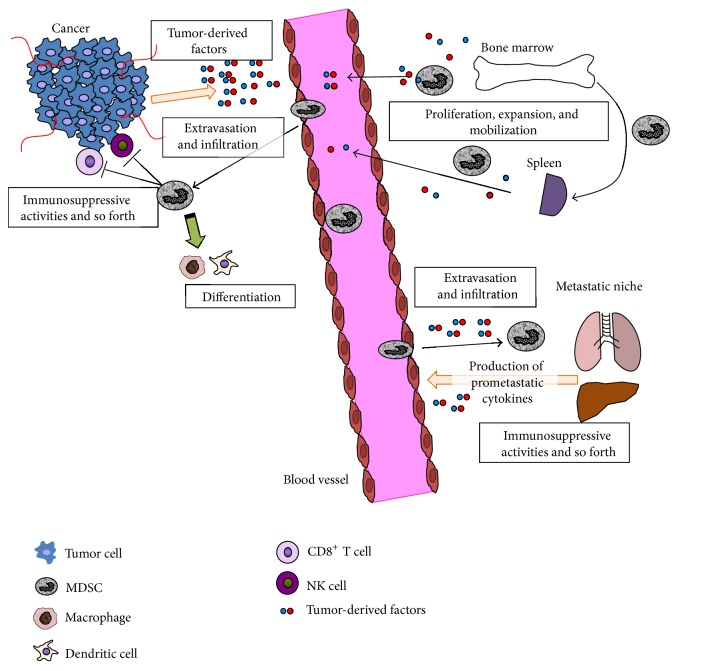Figure 2.
Schema of MDSC expansion and recruitment machinery. Tumor-derived factors (e.g., GM-CSF, IL-6, S100A8/A9, and PGE2) promote proliferation, expansion, and mobilization of MDSCs from bone marrow hematopoietic progenitor cells, and tumor-derived chemokines (e.g., CXCL1/2 and CXCL12) recruit MDSCs to primary tumor and metastatic niche according to their chemokine gradients. Bone marrow-derived MDSC precursors are also arrested at marginal zone of spleen and migrate to the red pulp and proliferate. Recruited MDSCs support tumor progression by the immunosuppressive activities against cytotoxic CD8+ T cells and NK cells. M-MDSCs can differentiate to mature nonsuppressive dendritic cells or type 1 macrophages. MDSCs also facilitate tumor-associated angiogenesis and epithelial-mesenchymal transition of cancer cells, which results in invasion and extravasation. On the other hand, MDSCs can contribute to mesenchymal-epithelial transition at the metastatic niche.

